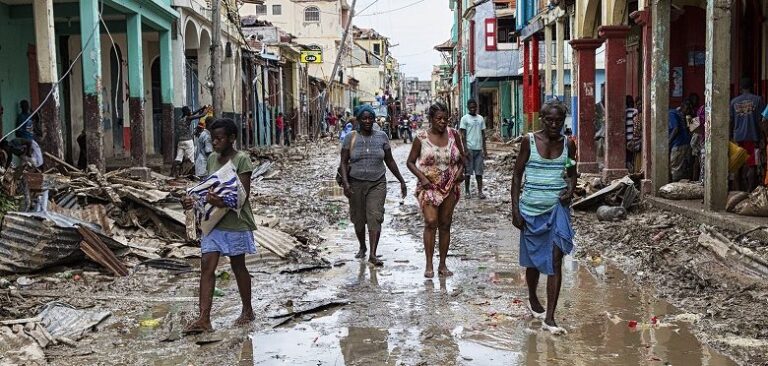The World Meteorological Organization (WMO) is supporting the first ever national strategic plan to strengthen Haiti’s Hydro-Meteorological Service (UHM), as well as backing a new international initiative to build resilience to extreme weather and climate change impacts in the western hemisphere’s most impoverished nation.
The Climate Risk and Early Warning Services Initiative (CREWS) Haiti project was launched at the end of January to improve forecasts and early warnings of hazards such as hurricanes, floods and droughts which regularly affect the vulnerable Caribbean nation.
WMO secretary-general Prof. Petteri Taalas said early warning systems were now more important than ever: “We have to strengthen observing systems and invest in early warning systems and national meteorological and hydrological services. We have been able to demonstrate that when you make such investments, you get your money back ten-fold in terms of avoiding economics and human losses.”
The WMO has been committed to Haiti ever since the 2010 earthquake that devastated the country. Inclusive in this re-building process was a partnership between WMO and the Environment and Climate Change Canada (ECCC) to initiate a project that sought to restore hydrological and meteorological services.
The project, titled ‘Climate Services to Reduce Vulnerability in Haiti’, was implemented by the WMO to help re-establish these services to be accessible to all critical sectors and vulnerable communities. Since its inception in 2012, the project has provided essential support to establish and modernize the National Meteorological Service’s main functions of observations, forecasting and service delivery.
The four-year CREWS project seeks to further improve the capacity of UHM to develop and deliver co-produced multi-hazard alerts, as well as to strengthen its cooperation with key ministries, priority sectors and communities that will increase the effectiveness of Haiti’s early warning system. This will be done through improving the technical capacities of UHM to better calibrate and integrate systems for flood warning; improve the numerical weather prediction use and forecasts; and to have an overall quality management system.
John Harding, head of the CREWS Secretariat, thanked national authorities for their leadership on the project. “Country-led projects are a key principle for CREWS, along with ensuring that early warning systems are gender sensitive and focus on the needs of the people most at risk,” he said.



